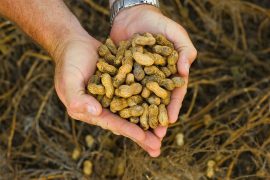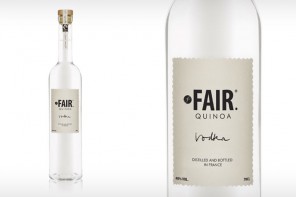Written by: Giulia Simolo
Vegetarianism is a lifestyle change that can help improve your health, but it’s also a moral issue. Some people who cut meat from their diet feel better about themselves. If you’re thinking about becoming a vegetarian, the environment is happy, too. Here are some benefits of vegetarianism.
Maybe you became a vegetarian because you became more conscious of what you were putting in your body or you wanted to lead a healthier lifestyle. Maybe a serious thought for the environment also contributed to your decision. But whether or not it did, did you know that becoming a vegetarian is one of the biggest contributions you can make to eco-friendliness? According to Dr. David Brubaker at John Hopkins University, how animals are bred is a huge threat to the environment. The process pollutes the planet while using great amounts of water, grain, pesticides and drugs. It therefore places a large strain on the environment and contributes to the extinction of animals.
You might think that by cutting out meat you’re not really making much of a difference in the larger scheme of things. You are not able to shut down the industries that slaughter animals, after all. However, by cutting out meat from your diet you are significantly lowering your carbon footprint. What this means is that you are making a substantial difference to alleviating the problem. Now, imagine if more people jumped on the bandwagon and stopped eating meat. The difference made would continue to multiply.
Why the planet is helped when you cut meat from your diet:
You don’t use up limited resources
The earth’s resources are already limited so when farmers rear animals to slaughter, the problem is increased. The animals require a large amount of land on which to graze, plenty of water to drink as well as grain and food to make them grow. If these animals weren’t being reared for consumption, it would mean that we would not be increasing our carbon footprint or using up so much of the world’s resources so that we can eat meat.
You don’t waste water
In the article, ‘Making Every Drop Count’ published in the February 2001 issue of Scientific American, Peter H. Gleick states that it takes between 100 and 250 gallons of water to grow a pound of corn, but between 2000 and 8500 gallons of water to produce one pound of beef. That is an alarmingly large amount of water. Even scarier is the fact that a pound of ground beef only produces approximately four average-sized hamburgers!
You help the oceans
Yes, there are limited resources on the land, but what about our ocean life? With all our increased consumption and requirements for food, there has been an increase in the fishing of marine life such as salmon and tuna. The result is that the fish populations are nearing extinction. Many of the fishing practices that occur are also not humane, which just increases the gravity of the situation. By not eating fish products, you are not taking part in the disruption of the ocean life or global warming’s destruction.
You save other animals
If you refrain from eating meat, you prevent the killing of many animals for food. Animals in the meat industry are seen as nothing but commodities and many are forced to live in unhealthy, squalid conditions. By becoming a vegetarian you are taking a stand for the ethical treatment of animals and working towards the ending of animal suffering.
Chemical fertilisers stop harming the environment
Along with saving animal life, vegetarian lifestyles mean that less chemical fertilisers are used in the creation of food. Chemical methods of production have replaced manure fertiliser to aid the growth of crops, which is negative for the environment. What makes the situation even worse is that animal manure piles up, leading to pollution of rivers and causing a lot of waste for our lovely planet.
Becoming a vegetarian means that fewer animals need to be reared for food, it means that water consumption is reduced and we stop wasting our limited resources. But most importantly of all, it also results in more food being available to aid in our battle against human poverty.
The liveeco team










